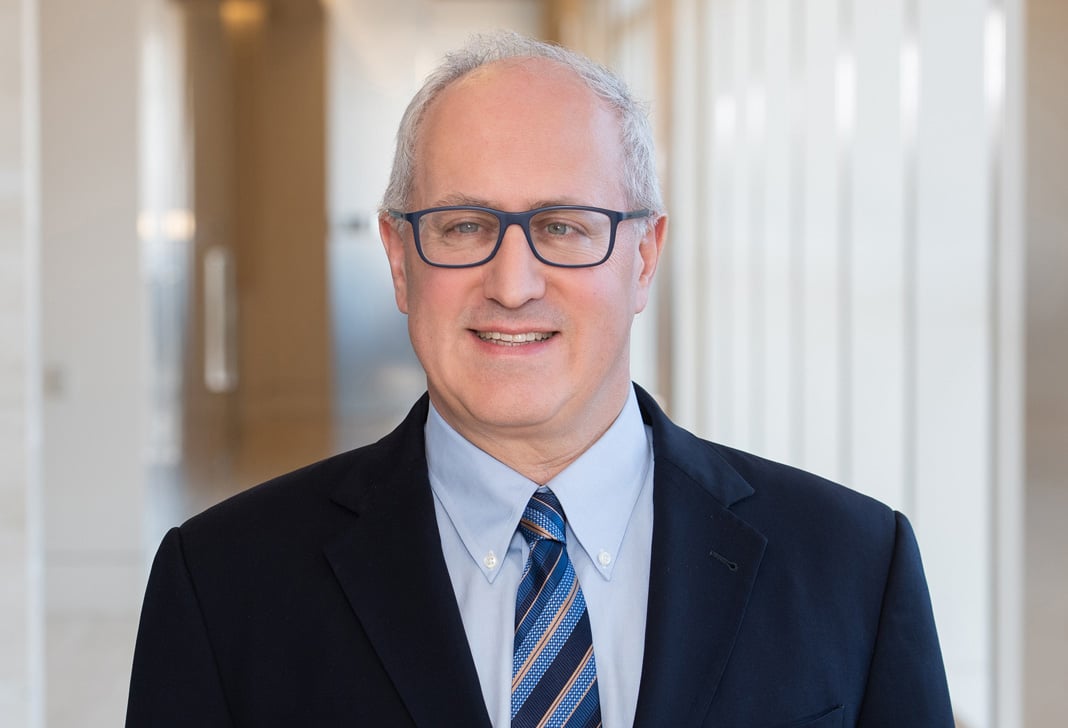
CMS Makes Changes to the Stark Law: Addressing Payment Reform, Reducing Burden, and Facilitating Compliance
On November 16, 2015, the Centers for Medicare and Medicaid Services ("CMS") published a final rule with changes to the Hospital Outpatient Prospective Payment System ("OPPS") and Ambulatory Surgical Center ("ASC") payment system ("Final Rule") (80 Fed. Reg. 70886 (November 16, 2015)). In addition to perennial payment modifications and clarifications of guidelines, the Final Rule includes new exceptions and much-needed clarifications as to the agency's interpretations of several key regulatory elements of the federal physician self-referral law (42 U.S.C. §§ 1395nn et seq.) ("Stark Law").
The Stark Law prohibits physicians from making a referral for certain designated health services ("DHS") payable by Medicare to an entity if he or she (or an immediate family member) has a financial relationship with the entity, unless an exception applies, and prohibits the entity from filing claims with Medicare for those referred services. The statute also provides for a number of narrowly drawn exceptions and grants the Secretary of the Department of Health and Human Services ("HHS") the authority to create regulatory exceptions for financial relationships that pose no risk of program or patient abuse.
As stated by CMS, the purpose of the Final Rule is to enable the Stark Law regulations to facilitate needed accommodations for delivery and payment systems reform, such as the Comprehensive Care for Joint Replacement mandatory bundled payment model, and to reduce the regulatory burden and facilitate compliance. Additionally, in enacting the Final Rule, CMS was particularly focused on expanding access to needed health care services. Accordingly, as a means of advancing those goals, the Final Rule expands the regulations to provide two new exceptions, establishes new and revises old policies for certain requirements, and clarifies existing regulatory terminology and interpretation.
New Nonphysician Practitioner Employment Recruitment and Retention Exception
In response to the primary care and mental health services workforce shortages, the Final Rule creates a new exception to permit, subject to certain limitations, a hospital, federally qualified health center ("FQHC"), or rural health clinic ("RHC") to provide financial assistance to a physician who employs a nonphysician practitioner to provide primary care or mental health services. The Final Rule states that, for purpose of this exception, a nonphysician practitioner is limited to a physician assistant, nurse practitioner, clinical nurse specialist, certified nurse midwife, clinical social worker, or clinical psychologist ("NPPs").
To address concerns that parties may use this exception to shift employment costs to a hospital, FQHC, or RHC, the Final Rule includes a number of requirements aimed at establishing "safeguards" to prevent "gaming." In addition to a number of familiar safeguards consistent with other Stark Law exceptions, to qualify for this new exception under the Final Rule requires that:
- The NPP furnishes substantially all primary care or mental health services to patients of the physician's practice;
- The contractual relationship for which a hospital, FQHC, or RHC provides assistance is directly between the physician (or a physician organization in whose shoes the physician stands) and the NPP;
- The remuneration from the entity to the physician is no more than 50 percent of the actual aggregate compensation, signing bonus, and benefits paid to the NPP during an assistance period not to exceed the first two consecutive years of the compensation arrangement between the NPP and the physician (or the physician organization in whose shoes the physician stands);
- The frequency with which an entity provides assistance to the same physician is no more than once every three years, with an exception if the NPP does not remain with the physician's practice for at least one year, provided that the assistance period is not extended; and
- The NPP must not have practiced in the geographic area served by the hospital, FQHC, or RHC that is providing assistance in the one-year period prior to the arrangement and must not have been previously employed by the physician or relevant physician organization (whether or not practicing in the area).
New Timeshare Arrangements Exception
Based on CMS's reported experience administering the Medicare self-referral disclosure protocol ("SRDP"), the agency recognizes that there are "legitimate reasons" for timeshare arrangements outside of traditional office space lease arrangements. As such, the Final Rule creates a new exception specifically to address timeshare arrangements that are structured to provide a license to use office space (and other property and personnel) without exclusive use of the leased items or services. Similar to other exceptions, CMS has enumerated a detailed list of required elements, including many familiar requirements found in other exceptions.
Requirements of note that are specific to the timeshare exception include:
- Where the arrangement includes a mix of office space, equipment, supplies, personnel, and other services, the predominant use must be for providing evaluation and management services to patients, and all items and services must be used on the same schedule;
- The equipment must be located in the "same building" where the evaluation and management services are provided, not used to provide DHS other than those provided incidental to evaluation and management services and not including advanced imaging, radiation therapy, or clinical or pathology laboratory equipment (other than equipment used to provide Clinical Laboratory Improvement Amendments ("CLIA")-waived lab tests); and
- The arrangement does not convey a "possessory leasehold interest" (or "right against the world") in the office space (i.e., it is a license and not a lease).
Importantly, the Final Rule limits the new exception only to arrangements between a hospital or physician organization and a physician, and not to other settings, such as an independent diagnostic testing facility or clinical laboratory. In addition, the exception requires that compensation over the term of the arrangement must be set in advance in a manner consistent with fair market value and prohibits per-unit-of-service and percentage compensation methodologies as well as other methodologies based on the amount of revenue attributable to the services provided while sharing the items or services.
Clarifying Writing, Term, and Holdover Requirements
What Is a Writing? Multiple Stark Law exceptions require a "writing" memorializing a practitioner–DHS provider relationship. In some cases, such as the exception pertaining to rentals of office space under 42 U.S.C. § 411.357(a), the writing must take the form of an "agreement," "signed by the parties." Under the Final Rule, CMS clarifies that "there is no requirement under the physician self-referral law that an arrangement be documented in a single formal contract." In fact, a "collection of documents" may satisfy the writing requirement. CMS notes in the Final Rule that it will review the facts and circumstances of an arrangement to determine whether the requisite "writing" exists but commented that a written agreement is probably still the surest way to confirm that all exception requirements are satisfied.
What Demonstrates a One-Year Term? Similar to the agency's analysis as to the writing requirement, CMS notes in the Final Rule that facts and circumstances of an arrangement, including a collection of documents, may establish that a particular arrangement has lasted or will last for at least one year. An explicit and formal contract term provision is not generally necessary to demonstrate compliance with the term requirement, according to the Final Rule's preamble. Again, the Final Rule states that CMS will apply a "facts and circumstances" review to each arrangement and, where an arrangement lasts for at least one year as a matter of fact, deem any exception requiring a one-year term satisfied. An arrangement that does not last a year may also satisfy the requirement, provided that the parties can demonstrate that the arrangement terminated during the first year and the parties did not enter into a new arrangement for the same space, equipment, or services during that year.
When Is a Holdover Too Long? Given its administration of SRDP, in the Final Rule, CMS states that it has reconsidered its earlier position on holdovers and has eliminated any time limitations on holdovers. Under the Final Rule, holdovers are permitted for arrangements structured to satisfy the Stark Law's personal services exception (42 U.S.C. § 411.357(d)) or space/equipment exception (42 C.F.R. §§ 411.357(a)-(b)). Under the Final Rule, stakeholders who inadvertently let an arrangement expire would not necessarily be out of compliance, provided that the arrangement continued on the same terms and conditions, and other specified safeguard requirements remain satisfied during the holdover.
Expanding Time Period for Temporary Noncompliance with Signature Requirements
CMS now allows parties 90 days to obtain signatures necessary for compliance with various Stark Law exceptions, regardless of whether or not the failure to obtain the signatures upon the date of noncompliance of the arrangement was inadvertent. Prior to the enactment of the Final Rule, the regulations allowed for "temporary noncompliance" with signature requirements but allowed only 30 days for compliance where omission of a signature was not inadvertent (42 C.F.R. § 411.353(g)).
Revising "Stand in the Shoes" Policy Consistent with FY 2009 IPPS Final Rule
In an effort to clarify the intent of the agency's language in the FY 2009 IPPS Final Rule, CMS has finalized revisions to 42 C.F.R. § 411.354(c)(3)(i) relating to the "stand in the shoes" provision. Pursuant to the FY 2009 IPPS Final Rule, CMS implemented a significant change as to when a physician may have a direct or indirect compensation arrangement with a DHS entity. As part of that rule, CMS established that if a physician organization is the only intervening entity between a DHS entity and the physicians with an ownership or investment interest in the physician organization, then such physicians "stand in the shoes" of the physician organization.
The Final Rule states that the "parties to the arrangement" signature requirements will apply only to the physician organization and any physician who stands in the shoes of the physician organization (and not other employed and contract physicians who are not owners) for two categories of exceptions: (i) the services exceptions that apply to both investment interest and compensation arrangements (42 C.F.R. § 411.355), and (ii) the compensation arrangements exceptions (42 C.F.R. § 411.357). The preamble to the Final Rule notes, however, that a physician who is standing in the shoes of a physician organization will be deemed to have satisfied the signature requirement for an applicable exception if the authorized signatory of the physician organization has signed the writing evidencing the arrangement. For all other purposes, CMS considers all the physicians in the physician organization to be parties to the compensation arrangement between the physician organization and the DHS entity. CMS states in the Final Rule that the purpose of this revision is to address inquiries from stakeholders relating to physicians without ownership or investment interests in their physician organizations. Specifically, CMS notes that this revision addresses questions as to whether such non-owner physicians are or are not considered "parties" for the purpose of determining whether compensation takes into account the volume or value of referrals or other business generated.
Addressing Concerns Related to the Definition of "Remuneration"
In the preamble to the Final Rule, CMS states that it does not intend to further revise the regulatory definition of "remuneration" at this time, but it does take this opportunity to address confusion that may have been caused by the United States Court of Appeals for the Third Circuit's decision in United States ex rel. Kosenske v. Carlisle HMA, 554 F.3d 88 (3d Cir. 2009). In Kosenske, the Third Circuit Court of Appeals held that the use of hospital resources (e.g., exam rooms, nurses, supplies) by a physician when treating a hospital's patients is remuneration, even when the hospital and physician separately bill the appropriate payor for the resources or services provided. CMS states that it disagrees with this interpretation that such an arrangement constitutes remuneration. However, CMS does caution that a "non-Medicare global billing arrangement" for items and services of both the physician and the hospital might confer a financial benefit on the party receiving payment. In such a case, the party that bills globally receives payment for items or services provided by the other party, thereby implicating the Stark Law.
Preventing Conflicts of Interest: Public Web Site and Public Advertising Disclosure Requirements for Physician-Owned Hospitals
After the enactment of the Affordable Care Act (the "ACA"), CMS received many inquiries about the ACA's additional requirements for rural provider and hospital ownership exceptions, including the requirement that a physician-owned hospital must disclose on any public website for the hospital and in any public advertising that the hospital is owned or invested in by physicians. In particular, CMS received a number of requests for it to provide additional guidance clarifying the terms "public Web site for the hospital" and "public advertising for the hospital," the range of statements that constitute a sufficient disclosure, and the period of noncompliance for failure to disclose such information.
Public Website Disclosure Requirement. CMS, in publishing the Final Rule, amends its existing list of examples of the type of websites that do not constitute a "public Web site for the hospital" to include, by way of example, social media websites, electronic patient payment portals, electronic patient care portals, and electronic health information exchanges.
Public Advertising Disclosure Requirement. CMS defines "public advertising for the hospital" for the purposes of the Stark Law in the Final Rule as "any public communication paid for by the hospital that is primarily intended to persuade individuals to seek care at the hospital." CMS also clarifies in the preamble that public advertising for the hospital does not include communications made for the primary purpose of recruiting hospital staff, public service announcements, and community outreach issued by the hospital.
Statements that Constitute a Sufficient Statement of Physician Ownership or Investment. The Final Rule amends 42 C.F.R. § 411.362(b)(3)(ii)(C) to specify that any language that would put a reasonable person on notice that the hospital may be physician-owned would be sufficient disclosure to identify that the hospital is owned or invested in by physicians. CMS's preamble to the Final Rule provides a number of examples of such sufficient language, including "this hospital is owned or invested in by physicians," "founded by physicians," "operated by physicians," and a number of others. CMS also states that in many instances, a hospital's name, by itself, would be enough to constitute sufficient language to meet this standard.
Period of Noncompliance for the Disclosure Requirements. CMS clarifies in the Final Rule that the period of noncompliance for failure to meet the website disclosure requirement is the period during which the physician-owned hospital failed to satisfy the requirement. Similarly, the Final Rule also clarifies the period of noncompliance with respect to the public advertising requirement, stating that the period of noncompliance is the duration of the applicable advertisement's predetermined initial circulation, unless the hospital amends the advertisement to satisfy the disclosure requirement at an earlier date.
Soliciting Comments to Address Evolving Payment Reform Models
CMS recognizes that the Stark Law is viewed as setting barriers for stakeholders to achieve clinical and financial integration. As such, when CMS issued its initial proposed rule in July 2015, it expressly requested substantive comments as to its "volume or value" and "other business generated" standards and other rules for physician compensation. As a result, CMS received many insightful comments, and CMS plans to carefully consider these comments as it prepares its reports to Congress and as it considers whether additional rulemaking on these issues is necessary.
Conclusion
While the Final Rule does reflect some promising new regulatory exceptions, much-needed clarifications, and potential flexibility in analyzing arrangements beyond the four corners of a written contract, providers should not interpret it as an invitation toward relaxed compliance. Generally, the changes and clarifications outlined in the Final Rule will function more as "safety nets" for those providers who discover past instances of noncompliance—missed signatures and unexecuted renewals. CMS largely remains steadfast as to its key contractual underpinnings for Stark Law exception compliance.






